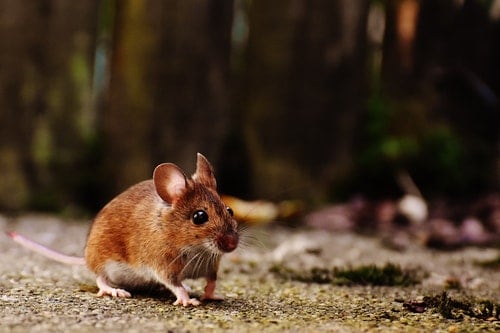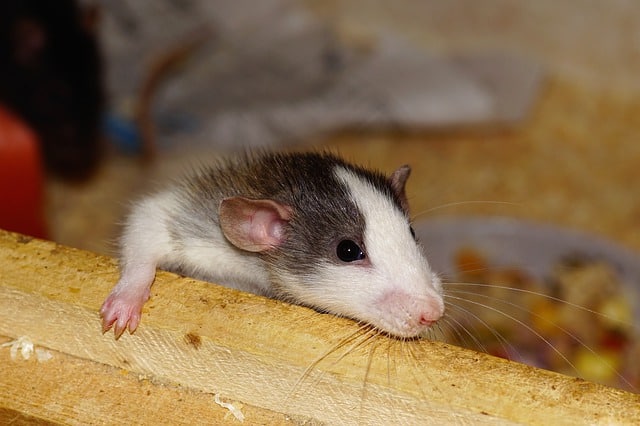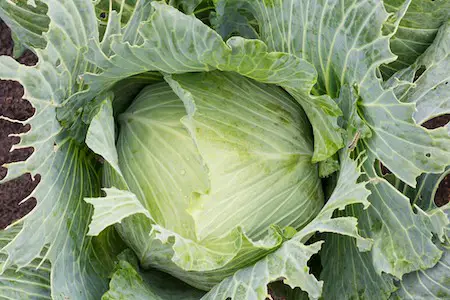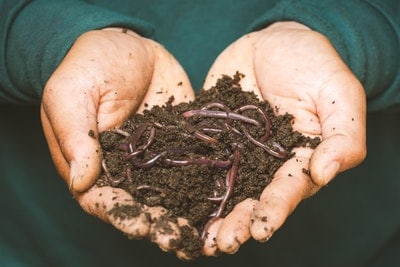Why do you need to keep rats out of your garden? Rats can be a prevalent problem in most British gardens, with the ability to damage property and your plants as well as spread parasites and disease. Rats are seen to be pests or vermin in the garden, but you might have to do some detective work to see if they have made your garden their new home – it’s tough to spot them as, being nocturnal creatures, they tend to be the most active at night which can make them hard to see!
So if you suspect that you might have an issue with rats in your garden, keep a lookout for their tracks in any soft ground, as well as burrows close to possible food sources. Depending on how large your garden is, you might also be able to hear the rats at night as they become more active. Keep an eye out for their droppings as well: these are cylindrical and approximately 15mm long, flat on one end and slightly tapered on the other. If you have any of this in your garden, read on to discover how to put an end to your rodent worries!
The damage rats can do to your garden varies from annoying to infuriating. Rats use their incredibly sharp teeth to gnaw on almost everything, from wood to plastic to electric cables – and of course, your fruit and veg. Not only can this damage the aesthetic appearance of your garden, but it can also end up costing you hundreds of pounds to replace or repair.
Also, it is important to note that rats carry a variety of bacteria viruses and parasites such as fleas and worms that can affect the health of both you and your pets. There is a possibility of rats passing this disease onto members of your home[1] (yes, even if the rats are only in the garden!) as their droppings can infect your fruit and veg, so it’s better to err on the side of caution and get them out of your garden for good before they make their way into your home.
How To Keep Rats Out Of Your Garden
-
Make Sure They Don’t Have Access To Food
Food waste or birdseed could be the cause of the rat problem in your garden, with the rodents searching for a reliable food source and then building their nests close by. Ensure you keep your food waste bin sealed and tidy, and sweep up any dropped bits of bird feed, and ensure you’re using an elevated bird feeder and not just sprinkling the seed on the ground. If your rat problem is so persistent, you may want to consider not providing food for birds or hedgehogs, at least until you get the problem under control.
-
Keep Your Garden Tidy
The less your garden is overgrown, the less cover the rats have, meaning fewer opportunities to build their nests. Keeping the grass short and other areas clean and tidy (remove any wood, rubbish, clippings and so on) is an easy way to keep rats out of your garden space.
-
Check Areas That Rats Are Drawn To
Compost heaps, household waste areas, and especially underneath your decking and sheds. You may want to board up any holes in your fences, decking or sheds – rats only need the tiniest of gaps to enter, so make sure everything is sealed tightly. Regularly restack, or remove, any piles of wood that may be providing shelter for rats as well.

What To Do If Rats Are Already In Your Garden
Rats are extremely intelligent and wary of any sort of danger to themselves, so eliminating the rodent presence from your garden can be quite difficult. There are varying methods available for you to try, some involving poison or traps. Whatever way you attempt to get rats out of the garden, make sure that it is a humane treatment that offers no risk to you, members of your household, or family pets.
Firstly, let’s look at how to remove rats without using traps or poison:
-
Catnip
Cats love it, but rats hate it. Rats have highly sensitive noses and find certain smells overwhelming, which can cause them to avoid these places. Place some catnip around the areas you suspect rats of inhabiting – although be wary that this may attract cats into your garden, which you might not want to do!
-
Netting
Placing netting or chicken wire around your plants can deny rats access to the reliable food source that they have come to depend on, which can push them to move on to other places and out of your garden. Although, rats may be able to chew through this, so check it regularly and switch it if you start to see any signs of damage.
-
Peppermint oil
Concentrated peppermint oil is too strong for rats. Dampen a cloth or cotton wool with peppermint oil and place it around your garden, especially near woodpiles, decking and your compost heap.

If none of these does the trick, you may wish to consider using traps or poison. Before you do, ensure you follow the instructions closely and use only as the manufacturer intends. If you are considering poison, you may wish to call in a professional to help you.
-
Rat traps
There are a variety of rat traps out there that can cater to your needs. If you decide to go down this route, remember that rats are quite shy and super-alert to any new additions to their environment, so it may take a short while for the traps to be effective. Be sure to place the traps in areas where they won’t be disturbed by people or other animals, as depending on which trap you purchase, some could potentially cause harm.
You also want to ensure that the trap is humane. You can also place peanut butter or other types of food on or around the trap to entice the rat to the area. Have a look online or at your local gardening centre for the rat traps that are available.
-
Poison
There are poisons available on the market that vary in effectiveness and quality of ingredients, so be sure to research the product you are considering purchasing before you buy it. Some poisons require repeated doses to be effective, while others only need one dose in order to be lethal, so consider which one would be the best option for you.
Remember to place the poison near where the rats are nesting or getting their food from, and to coat the poison in something they will mistake to be food. When dealing with poison, if you find yourself in doubt about anything at all, consider making use of professional help, as especially if dealing with an outdoor rat infestation you need to be extremely cautious and ensure that no children or other animals are in reach of the poison.
Conclusion
Hopefully, you will be able to make use of some of the ideas above in order to eliminate the rats from your garden! It might take a bit of trial and error at first, but with persistence, you should be able to get the rats out of your space so that you can relax and enjoy your garden.
Glossary
[1] Link






